New Zealand is full of opportunities and offers international students options to stay back in New Zealand.
Experience academic excellence, pristine nature, and welcoming communities. Immerse yourself in a unique blend of education and adventure.
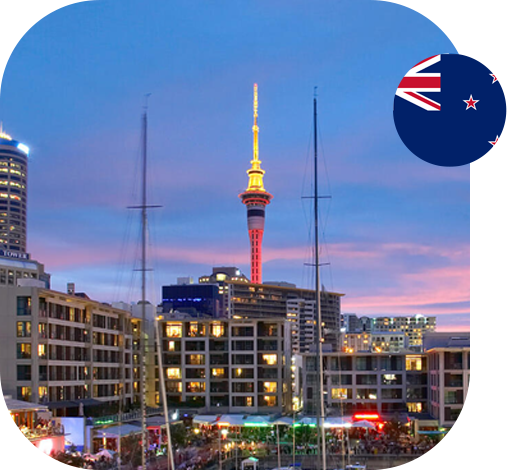
New Zealand is one of the best places in the world to live and study. It is a young, friendly and welcoming country with internationally-renowned education system.
An island nation in the southwestern Pacific Ocean, New Zealand is composed of two main landmasses: the North Island and the South Island. With an area size of 268,021 km², it is home to 5.1 million people with more than 30,000 international students. Wellington is the capital of New Zealand and the languages spoken are English, Māori, New Zealand Sign Language.
The weather in New Zealand can be unpredictable and the locals even joke that you can experience all four seasons in just one day. Most of the country lies close to the coast resulting in mild temperatures. January and February are usually the warmest months and July is the coldest month of the year.
With magnificent landscapes and coastlines, New Zealand is a natural playground full of endless opportunities. You can expect to meet students from all over the world.
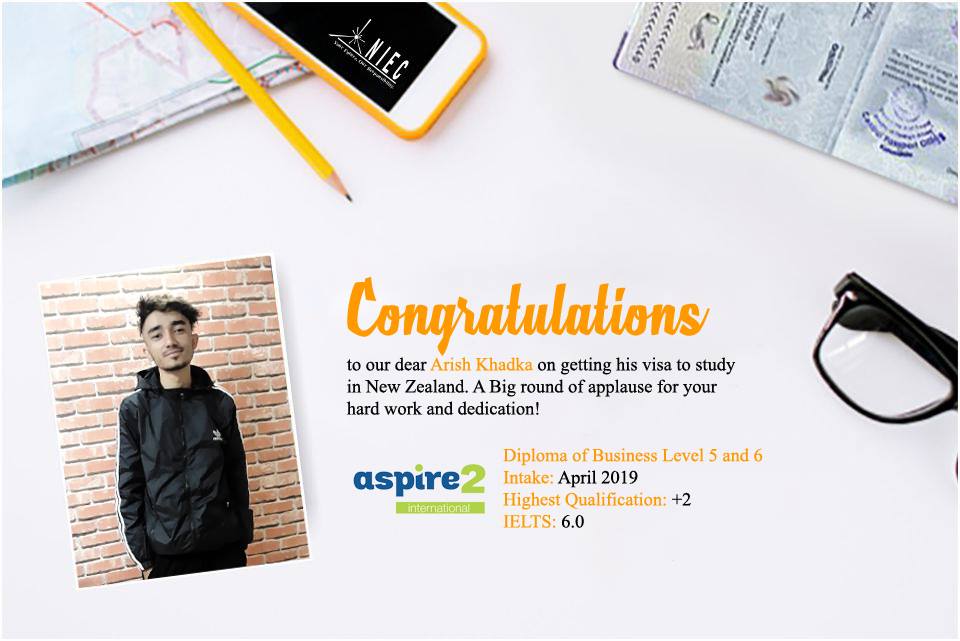
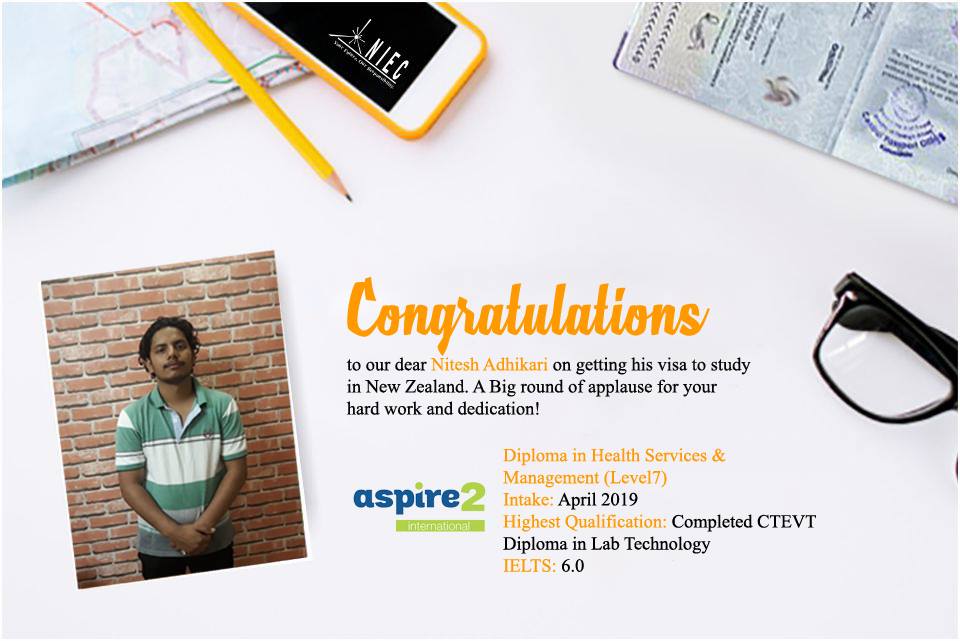
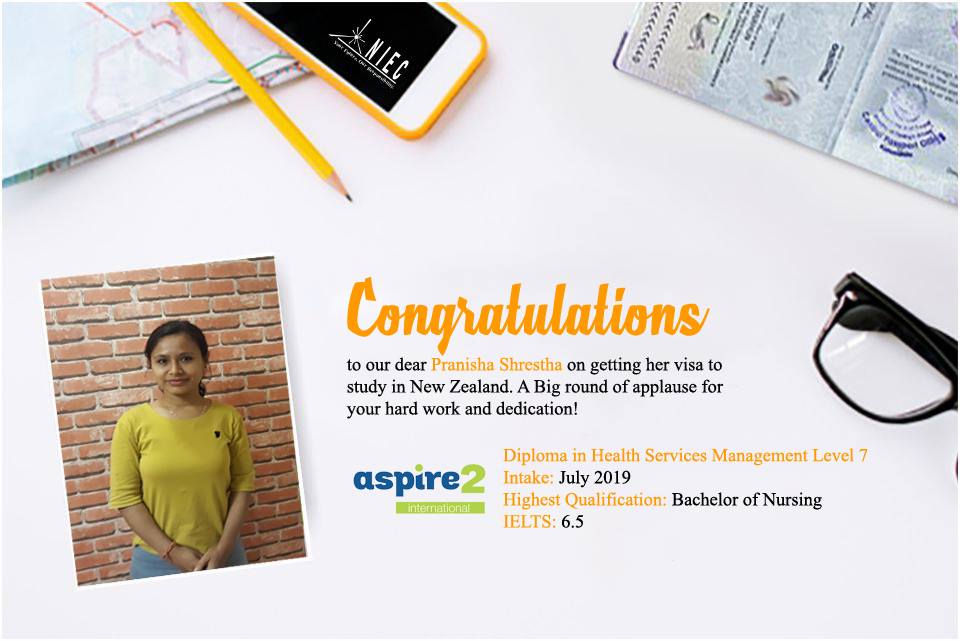
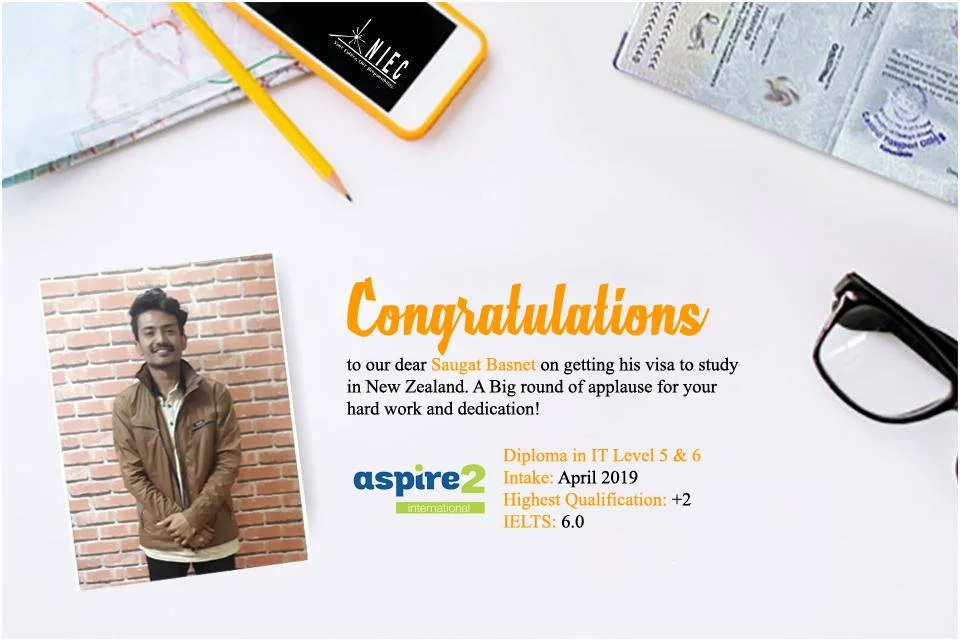


New Zealand offers a high-quality education that enables students to achieve their goals. Students are supported to solve problems, work with others, process information, create and innovate in every level of their studies. The education system in New Zealand has three levels: Early Childhood Education, Primary and Secondary Education and Further Education.

Early Childhood education (from birth to school entry age) offers education and care for children before they are old enough to attend a school. It helps students become confident and curious developing important skills to become happy, strong and successful in later life. ECE is not compulsory in New Zealand however; around 96.8% of children attend early childhood education. New Zealand has more than four thousands licensed ECE services available including kindergartens, childcare centers, play centers, home-based care and playgroups.

Primary and secondary schools are the second level of education in New Zealand. The primary education starts at Year 1 and continues through Year 8 where Years 7 and 8 are also offered at a separate intermediate school. Intermediate schools are the bridge between a primary and secondary school. There are three types of schools in New Zealand: state schools, state-integrated schools and private schools. Education between the ages of 5 and 19 at state schools is free of cost for the citizens of New Zealand or a permanent resident. Secondary schools are also known s high schools or colleges.

As New Zealand was once a British territory, higher education closely resembles that of the UK. Education institutions have to be accredited by the New Zealand Qualifications Authority (NZQA) to award qualifications. New Zealand has eight state-funded universities, 16 Institutes of Technology and Polytechnics (ITPs) which have been unified into the New Zealand Institute of Skills and Technology (NZIST), and about 550 Private Training Establishments (PTEs), which include English language schools. Universities offer higher degree-level education that is research led and generally academic rather than vocational while ITPs and a few larger PTEs offer vocational degree-level education. PTEs generally tend to offer specific vocational programs, mainly at the certificate and diploma level.
It is very important to check that your study program in New Zealand will lead towards a qualification on the New Zealand Qualification Framework (NZQF) which basically means quality assured. The NZQF is divided into 10 different levels and offers students a range of qualifications from certificates to doctoral degrees. These levels are based on how complex the learning is where a level 1 certificate is the least complex. The NZQF has ten levels as follows:

A certificate at level 2 qualifies individuals with introductory knowledge and skills for a field(s)/areas of work or study.
A certificate at level 1 qualifies individuals with basic knowledge and skills for work, further learning and/or community involvement
A certificate at level 1 qualifies individuals with basic knowledge and skills for work, further learning and/or community involvement
A certificate at level 1 qualifies individuals with basic knowledge and skills for work, further learning and/or community involvement
A certificate at level 1 qualifies individuals with basic knowledge and skills for work, further learning and/or community involvement
A diploma at level 7 qualifies individuals with specialized and technical knowledge and skills within a professional context.
A Bachelor’s Degree provides individuals with a systematic and coherent introduction to a body of knowledge of a recognized major subject3 (or subjects, in the case of a double degree or a double major) as well as to problem-solving and associated basic techniques of self-directed work and learning.
A Graduate Certificate is designed primarily as a vehicle for degree graduates to pursue further study at an advanced undergraduate level.
A Graduate Diploma allows degree graduates to pursue a significant body of study at an advanced undergraduate level.
A Bachelor Honours Degree recognizes distinguished study at level 8. It may either be a degree in itself, or a discrete postgraduate degree following a Bachelor Degree.
The Postgraduate Certificate is designed to extend and deepen an individual’s knowledge and skills.
A Postgraduate Diploma is designed to extend and deepen an individual’s knowledge and skills by building on attainment in the principal subject(s) of the qualifying degree, graduate diploma or graduate certificate. A Postgraduate Diploma prepares an individual for independent research and scholarship in the principal subject of the diploma.
A Master’s Degree qualifies individuals who apply an advanced body of knowledge in a range of contexts for research, a pathway for further learning, professional practice and/or scholarship.
A Doctoral Degree is a research degree whereby the individual becomes an increasingly independent scholar who makes a substantial and original contribution to knowledge
NZQF qualification is defined as “A qualification recognises the achievement of a set of learning outcomes for a particular purpose through formal certification.” It is a framework based on outcomes, described in terms of knowledge, skills and attributes, and their application.
All quality assured qualifications listed on the NZQF fit into a qualification type where each qualification type is defined by an agreed set of criteria which includes the level at which the qualification is listed and the number of credits required at each level.
Qualifications on the NZQF lay out a clear pathway to the level of knowledge and skills that you’ll have gained when you graduate, as well as what further education and employment opportunities the qualification could lead to.
The higher education institutions in New Zealand are spilt into four categories: Universities, Polytechnics and Institutes of Technology and Private Training Providers. It is important that all education institutions that award qualifications must be accredited by the New Zealand Qualifications Authority (NZQA).
New Zealand has a total of eight universities which are state-owned and largely research based. Courses from the certificate level to doctorates are offered at these universities it is this wide range of courses, teaching and research opportunities that distinguish a university from other institutions. An academic session usually starts twice a year during February and July where November to January is marked as summer breaks. The academic year is split into two semesters that consists of three months each. According to the QS World University Rankings 2020, seven of New Zealand’s universities were in the top 100 in at least one subject.
New Zealand has a total of Institutes of Technology and Polytechnics (ITPs) that are also state-owned and offer courses equivalent to those offered at universities that ranges from certificate to degree level to postgraduate studies. ITPs in New Zealand are vocational and applied education institutions and are more vocationally-oriented and offer a more practical approach to learning than many university courses. Academic year at ITPs usually have two semesters from February to June and from July to November.
New Zealand has about 550 Private Training Establishments (PTEs) which include English language schools too. Private training providers in New Zealand offer training in a specific discipline, such as tourism management, hospitality management, business or cooking. These establishments are also vocationally- oriented and aim to get a student into qualified employment directly after graduation.
English language schools offer English language courses to international students who are required to complete English language course before starting their academic studies.
International students need to consider various application procedures, immigration rules, costs required in order to start their student life in Canada.
Once you have learned about the education system in New Zealand, the degrees offered and the qualification framework, you will have a better understanding of what you want to study in New Zealand. You should now consider the admission procedures, requirements, immigration and costs of studying in New Zealand.
It is now time that you decide on what you want to study and where you want to study in New Zealand. In order to choose your course and institution, as with any other study destination, you should begin by exploring the wide range of courses offered in various education institutes in New Zealand. A good research is the key and it is highly suggested that you visit websites of various institutions, check their admission requirements, courses and scholarships offered. You can also compare courses and institutions based on the tuition fees and ranking. Selecting your course and institution is a crucial decision and henceforth you should start researching early so that you can spend enough time to make the right choice.
Once you have decided on your course and institution you want to apply to, you should immediately get started with the application process. Universities or Institutions generally set out various admission criteria and require you to meet the admission requirements and provide various documents.
You should check your university or institution’s website to learn about the deadlines and application process. Generally the admission process requires you to submit a complete application form with all your details. You will also need to additionally provide evidence that you meet the English language requirements. Other important documents include a copy of your passport and academic transcripts. Documents that are not in English may be required to be translated into English and you may be asked to provide certified copies. You can simply follow the instructions on the website or you can also contact the admission office if you need any further assistance. Once you complete the application process and submit the required documents, you will receive an offer of place if your application is accepted.
Education institutes in New Zealand set out their own tuition fees and what you will pay can be different depending on the choice of your institution. As mentioned in the official Study in New Zealand website, undergraduate international students can expect to pay around NZ$22,000- 32,000 per year with higher fees for subjects such as medicine and veterinary science.
For international students wanting to pursue a master’s degree, you can expect to pay around NZ$26,000- 37,000 per year. On the contrary, international PhD students can pay the same as domestic students around NZ$6,500- 9000 per year.
It is very important that you start looking and applying for scholarships during your university application process keeping a close eye on the deadline. Scholarships might be offered by the institutions themselves or, the government also offers a wide range of scholarships and you can look up for these scholarships on the Education New Zealand’s website (www.studyinnewzealand.govt.nz). It is also important that you check for scholarships offered on the official websites of the university or institution that you’re applying to. Scholarships are available at all levels for international students including students who want to gain a PhD.
Majority of courses in New Zealand are offered in English language henceforth, if English isn’t your first language, it is important that you provide evidence of your English language proficiency. The New Zealand Qualifications Authority (NZQA) sets the English language entry requirements for international students and all education providers are responsible to ensure that the students have the required level of English language proficiency for the level at which they intend to study. International students intending to join courses at Level 3 or above should provide evidence that they have achieved the required scores for one of the internationally recognized proficiency tests.
The bigger cities will require a larger living budget in comparison to smaller cities and towns. The living costs largely depend on the type of accommodation you choose, the area you live, how often you travel or commute and your spending habits.
Generally, it is required for international students to provide evidence of funding for their living. It is required to prove that you have at least $20,000-$22,000 to support yourself in the first year. In case you are studying for up to a year only, you are required to prove that you have at least $1250 for each month of study.
Once you have gathered enough information on the course, your education provider, tuition and living fees and scholarships, it is important that you learn about immigration and visa procedures. It is suggested that you get started with your visa application at least 2 months prior to the course commencement date.
How to apply for New Zealand Visa from Nepal to Study in New Zealand
In order to qualify for a student visa, it is important that you are accepted for a course at an education institution approved by the Ministry of Education or the New Zealand Qualifications Authority (NZQA). Another important requirement is that you should have enough funds for your studies and stay in New Zealand. If you’re a fee paying student, it is also important that you have approved medical and travel insurance. Once you have gathered the required documents, you can choose to apply online or in paper.
In order to apply online, you should first gather all your documents, complete the online application form, upload your documents and pay the applicable fees. You can apply for your student visa online.
Applying on paper will require you to complete the paper application form and submit it along with your application fees and the required documents.
In order to process for your student visa, you will need to provide various documents. You can refer to the student checklist available on the Immigration website however, some major documents you are required to provide along with your application includes your identity which is your valid passport along with a color photo of yourself of your head and shoulders. Other supporting documents include an offer of place from an approved education provider, financial evidence to prove you are able to fund your studies and stay in New Zealand, medical certificates and police certificate. Documents that are not in English will be required to be translated and certified. You will also require medical and travel evidence.
It usually takes around 32 days to review your visa application. Students should also provide a cover letter or statement of purpose to explain the reasons you want to study in New Zealand. It is important that you give details about any previous visa rejection.
Now that you have been granted with your visa, it is important to consider essentials that you need to pack to brace yourself for your journey to New Zealand. It is also important that you learn about arriving at the airport.
You may feel unsure as to what you should be packing and what you will need in New Zealand. It is important that you consider the essential items while packing your luggage. Pack a bare minimum of clothes and avoid packing bed sheets, blankets or pillow cases. You only want to pack items that are absolutely essential that could include your electronics, prescribed important medications and any mementoes to help you with the homesickness. Make sure you have your carried your important documents too.
The most important document to carry is your valid passport along with your flight ticket. It is advised that you carry some cash in New Zealand currency for your convenience. Other essential documents include paperwork of your university including your offer, any payment receipt, health and medical insurance. It is important that you have the contact details for your university and accommodation handy.
International students often find their journey to a new country totally exhilarating and it is advised that you learn about arriving at the airport in advance to smoothly clear your immigrations. On your flight to New Zealand, you are generally asked to fill out the Passenger Arrival Card that requires you to fill in your personal details, your intension in New Zealand and most importantly it required you to declare any restricted or prohibited items that you are bringing into the country. Upon your arrival, you are required to go through Passport Control, Baggage Claim and then the Biosecurity.
The setup of Passport Control is usually very similar to many other countries where you must queue for Immigration officers to check your passport, visa and passenger arrival card. The Immigration officer might ask you a few questions and sometimes even require you to provide your documents. All the evidence might not be asked of you however, it is always best to be prepared which is why it is advised that you have you important documents handy.
Once you pass through the passport control, you can then collect your luggage and then head towards the Biosecurity where you will be asked again if you have anything to declare. Once you have been questioned by the custom offer, your luggage will be put through an x-ray and if required biosecurity will open your bag. Upon clearing the customs, you can then get out of the airport and head towards your destination.
It is important that you arrange for your travel in advance to avoid any complications. Depending on the city or area you have to get to, you should arrange for a domestic flight or pick-up services as required. The best way is to contact your university admission office who will advise you on the ways you can get to your university. Universities sometimes offer a free pick up or require you to pay for a shuttle service. There are a few ways to leave the airport by public transport. There are taxis that are more expensive than shuttles.
If you haven’t arranged for your pick-up in advance are not sure on how to get to your accommodation or university, the airport information desk inside the terminal building will also be a good help to get advice on how to travel.
You are now ready to start your student life in New Zealand after a lot of hard work including your admission and visa procedures. As an international student, there will be a lot of things you need to consider to commence your student life.
Orientation week is mandatory for all international students henceforth, it is very important to make sure that you arrive in New Zealand before the start of your orientation week. During this orientation week, students will be introduced to the university and all the services offered. You will be able to enroll in your classes too. It is highly suggested that you read your guidebook provided by your education provider which explain each part of your admission process in detail. Orientation week is a great opportunity to find your way around the campus.
You can request for a student ID card at your admission office when you arrive on campus. You can follow the instructions provided and provide your identity and a photo to get your student ID which will allow you access to various services on campus and often times you will also be entitled to student discounts.
As with any other study destination, New Zealand also provides various supports to international students to help them settle and adjust to a completely new environment. New Zealand wants every international student to do well henceforth, it is ensured that students feel welcomed, safe and supported to get the most of their studies and stay in New Zealand. In order to support the wellbeing of international students, the education providers in New Zealand have committed to the International Student Wellbeing Strategy that includes four types of wellbeing: economic wellbeing, education outcomes, health and wellbeing and inclusion.
The wellbeing strategy ensures that international students are able to support themselves, achieve educational outcomes that support their future pathways and choices, students are safe and well and that they are welcomed, valued and socially connected.
Additionally, there are International Student Advisers (ISAs) in most of the education institutions who provide ‘home away from home’ for international students.
Learning about basic things of student life in New Zealand will help you prepare yourself and make your stay easy.
The cost of living in New Zealand is similar to other OECD countries and is combined with an excellent work/life balance and a high quality of life. Your student visa application requires you to provide evidence that you can cover your living expenses. If you are studying in New Zealand for more than a year, the expected living cost is around $15,000 per year.
It is recommended that you open a bank account in New Zealand for your convenience. There are many banks in New Zealand you can choose from however, you should select that one close to where you live or study. Automatic Teller Machines (ATMs) are widely available which will make your banking life easy. In order to open an account in New Zealand, you will be required to provide some documents that include your passport, proof that you are a full-time student, proof of address in New Zealand. Additionally, you may be required to provide your IRD number and your Tax Identification Number (TIN).
All international students are required to pay taxed on any income earned in New Zealand for which they will require an IRD number. The IRD number will allow your employer to pay legally. It is highly suggested that international students apply or the IRD number as soon as they arrive in New Zealand which allows the authority to tax a student for the right amount of taxes when the student starts earning wages in New Zealand. International students who have worked in New Zealand can also claim a portion of the income tax that has been deducted regularly from their pay slip for which you will be required to file a tax return at the end of a financial year in order to be eligible for a tax refund.
International students can fill an IRD number application form or apply for the number online on the Inland Revenue’s website. The IRD number is the Tax Identification and also known as TIN. Upon submitting the complete application form to the IRD, you can receive your IRD number within 8-10 working days. Pay As You Earn or PAYE is the tax deduction process where before receiving payment, the employer deducts an amount as taxes.
In case you fall sick, you should see a doctor or general practitioner also known as GP. GP’s work at medical centers and you can make an appointment by phone or online. Most universities or education providers have health centers they recommend nearby. You can visit the student health care center and register before you get sick so that you will be able to make an appointment much quicker later on when required. International students should keep receipt of their payment so that you can claim this money back through your student insurance.
Dental care isn’t usually offered by student health services on campus however, they will be able to recommend you the places to go.
International students can drive up to 12 months with your current, full, valid driver’s license from your home country unless you haven’t received a suspension or disqualification. However, if your license is not in English, it is important that you get a certified English translation.
If you are in New Zealand for more than 12 months, you can also convert your overseas license to a New Zealand one buy filling in form DL5 and taking it to a driver licensing agent where depending on your home country, you may be required to take a theory and practical test.
If you have a student visa for New Zealand, international students may be able to work up to 20 hours a week during term time and full-time during scheduled holidays. If you are a Masters by research or PhD student, you may work full-time. Students use services like Student Job Search or career events on campus to find part time work. Students sometimes walk into shops, cafes or restaurants with their CV and ask about any job available. Getting a part-time job can help you meet new people and gain valuable experience.
Your student visa allows you to stay in New Zealand for up to four years. However, after this visa you can explore various other visa options. You can apply for another student visa or a work visa. However, it is important that you meet the criteria and apply accordingly. New Zealand offers various post-study work options leading to permanent residency.
New Zealand is full of opportunities and offers international students options to stay back in New Zealand.
International students who have completed an acceptable qualification in New Zealand can apply for a post-study work visa no later than three months after the end of your student visa (or six months, if you were studying for a doctorate). It is important that you have a minimum of NZ $4200 to live on while you’re in New Zealand. Post-Study Work Visa allows you stay for 1, 2, or 3 years and you can work for any employer and in almost any job in New Zealand.
You can apply for another Post-Study Work Visa if you complete another qualification that is at least at a Level 7 Bachelor’s degree or higher any other higher qualification than the one you had for your previous visa. Depending on your skills and experience, you may be able to apply for residence through the Skilled Migrant Category.
This resident visa allows you to live in New Zealand permanently and you can apply if you have the skills that can contribute to New Zealand’s economic growth. Your application is more likely to be accepted if you have employment in an area in which New Zealand has a skills shortage. It is important that you have enough skills, experience and qualifications and you should also submit your Expression of Interest. It is important that you have good command over the English language and if you meet the visa conditions, you can stay in New Zealand indefinitely. You will be able to live, work and study in New Zealand and you may also be able to include your partner or dependent children aged 24 and under. After this visa, if you comply with all the visa conditions, you may be able to apply for permanent residence.
A New Zealand PR has several benefits including opportunities to live, work, study and travel indefinitely without any restrictions. Additionally, you can avail medical facilities at subsidized rates and your children born in New Zealand who will automatically gain citizenship of the country by birth will be eligible for free education at state-run schools and universities.
You can apply directly by applying to New Zealand Government and the government uses a PR points system to evaluate your eligibility which includes various headings such as Employability, Work Experience, Qualifications, Family Ties and Age. Securing 140 points gets you selected for ITA (Invitation To Apply) for visa where the minimum submission criteria would be 100-135 points.

Ready to get started or have any questions? Get in touch.
We are located at your favourite city
Useful Links
Contact Info









